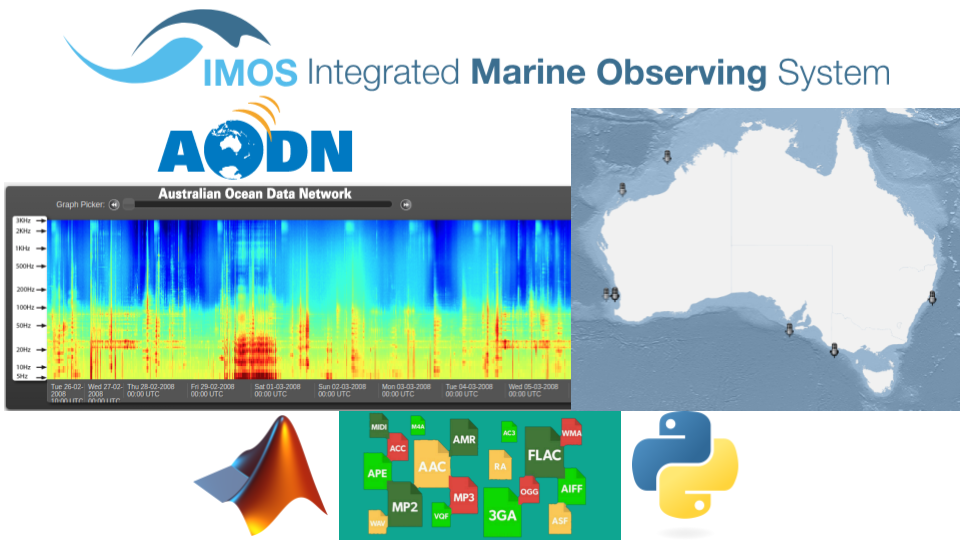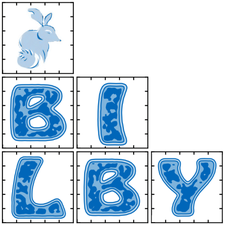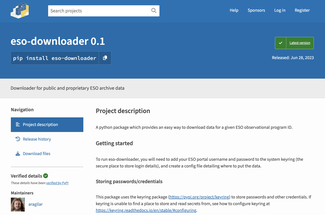
The Australian Ocean Data Network (AODN) provides a variety of physical, biological, and chemical data sets related to the waters around Australia. This repository of data supports a large amount and variety of research across many disciplines. Researchers at the Integrated Marine Observing System (IMOS, an NCRIS supported facility), provide acoustic data to the AODN. Previously this data has been either in a raw .dat format, which can be read with custom scripts, or as calibrated .wav format which is much more easily accessible with off the shelf software. Unfortunately not all of the data that has been collected by IMOS has been calibrated and converted into .wav format, and thus not all of the archival data is able to be provided via the AODN. Furthermore, whilst the custom script for calibrating and converting the data is freely available, it is not easily accessible, as it is written in MATLAB, which requires a licence to run, and is not easily incorporated into an HPC workflow.
In this project ADACS software developers took the existing custom MATLAB script and re-implemented in as a python library. The new implementation is easily accessible, and is modularised so that it can be incorporated into a larger workflow which might run on an HPC or cloud infrastructure. The pathway for bulk conversion of historical data is now within reach for the IMOS researchers.

Check out some of our other projects.

Parallel Bilby is a gravitational wave inference code that was running inefficiently. ADACS analysed the code to identify bottlenecks and gave recommendations on how to improve its performance.

ADACS collaborated again with the StarFit science team. Key achievements included adopting Meson and a multi-stage build approach, and integrating ReadTheDocs documentation into the workflow.

ADACS developed the "eso-downloader" Python package to automate ESO telescope data downloads. It streamlines access, quality checks, and retrieval, improving efficiency for astronomers in large programmes like GECKOS and MAUVE.